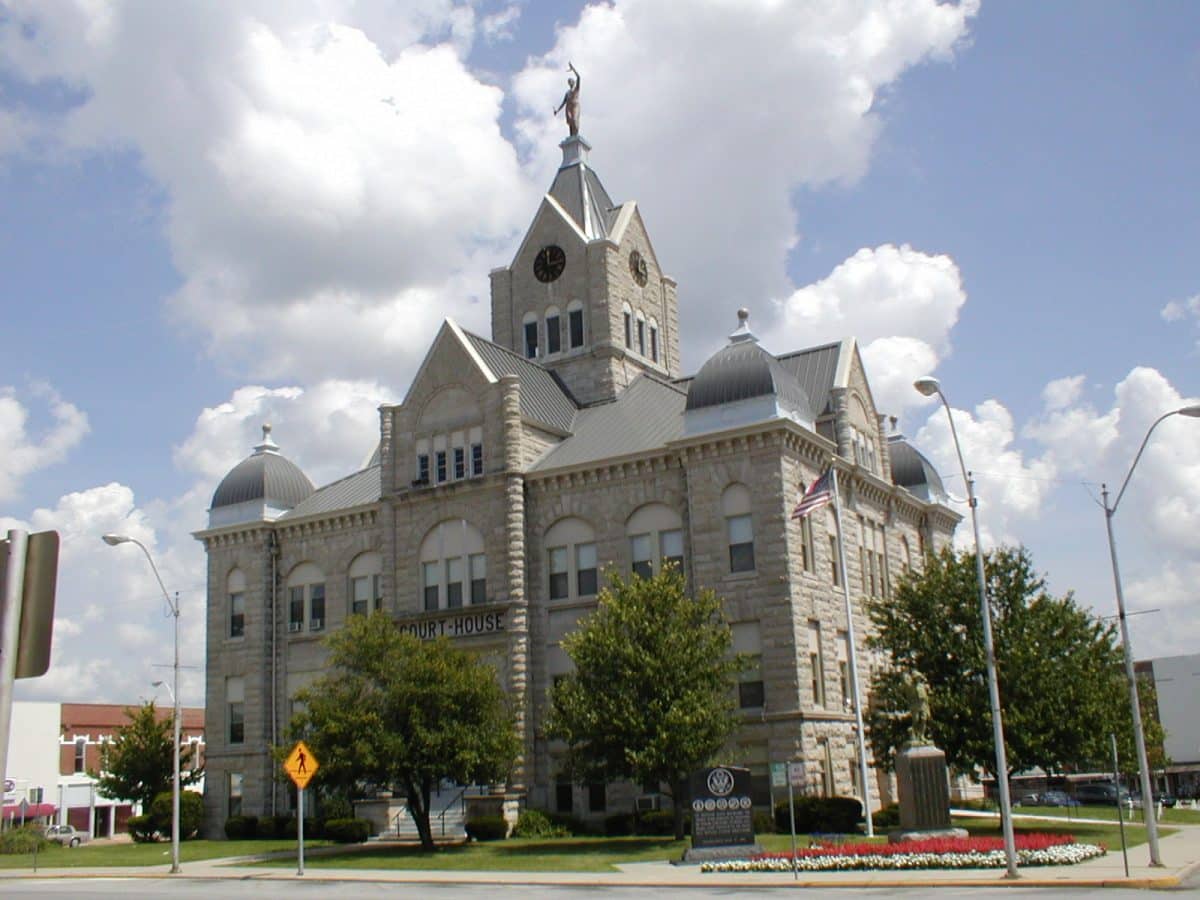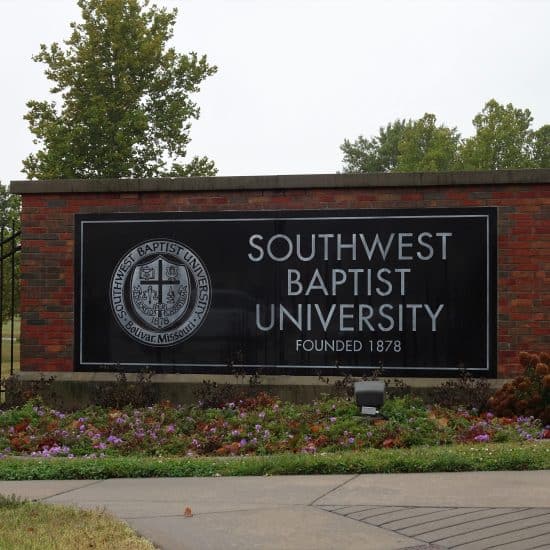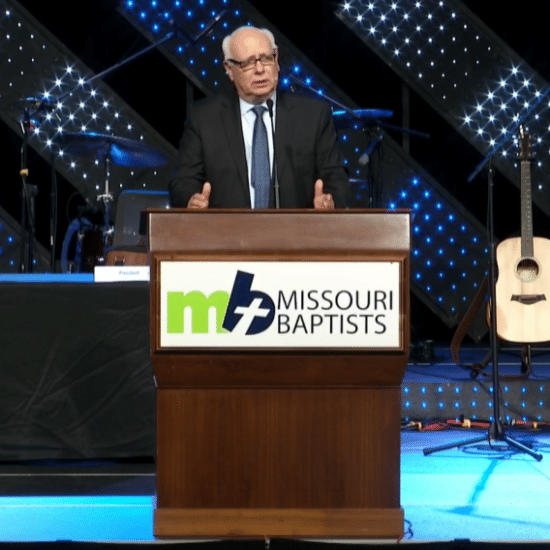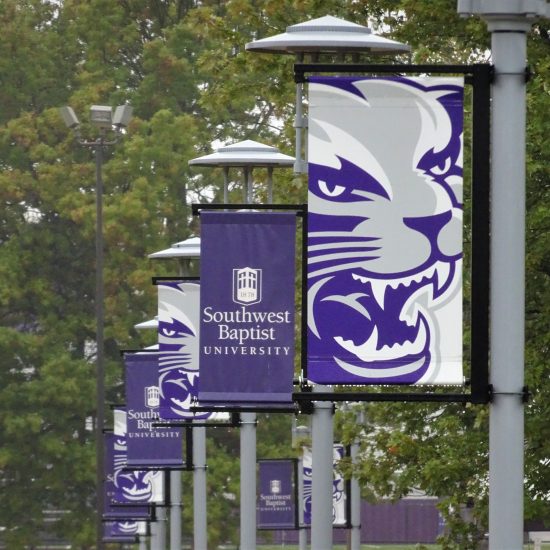
Before a judge heard arguments Friday (March 5) involving an effort by a former trustee of Southwest Baptist University in Bolivar, Missouri, to block the school’s new governing documents, a current professor and a current student filed to also intervene. Judge Michael Hendrickson of the Circuit Court of Polk County heard arguments from all three and SBU, but did not immediately rule.
Donald Jump, a Baptist layman in Bolivar, filed a petition on Feb. 22 in an effort to stop the approval of the school’s new governing documents that Missouri Baptist Convention leaders demanded the school adopt. SBU urged the court to not allow Jump to intervene, but before Fridays’ hearing two additional individuals petitioned the court to allow them to intervene and Jump responded to SBU’s arguments.

(William B. Roller/Creative Commons)
Calling the new governing documents “an unlawful effort” by the MBC “to seize absolute control over all assets of SBU,” the motion from the two new individuals adds that the governing documents are “inconsistent with the laws of the State of Missouri and deleterious to the public usefulness of SBU.”
In September, SBU’s Board of Trustees approved the final version of new articles of agreement and bylaws that name the MBC as sole corporate member and declare SBU trustees have a fiduciary responsibility to the MBC. The new petition claims the sole member language runs afoul of Missouri nonprofit law.
Messengers to the MBC’s 2020 annual meeting approved the new governing documents in October. The changes came amid a two-year controversy between the MBC and SBU that has seen professors terminated and the school’s accreditation under review.
The two new petitioners filed under pseudonyms because of their current statuses with SBU. The professor is identified in the filing as “John Doe,” and the student as “Jane Doe.”
“Prior to the filing of this action, the MBC and SBU have engaged in a pattern of harassing, oppressive, and retaliatory conduct adverse to those who have opposed their viewpoints and desires,” the petition notes in explaining the request for legal pseudonyms.
These actions are listed as including “(a) the termination, non-renewal, and denial of tenure of SBU professors; (b) the suspension and/or expulsion of students; and (c) the non-approval and removal of qualified officers of the corporation and members of the Board of Trustees.”
“As a result of John Doe’s and Jane Doe’s existing relationship with SBU and the MBC’s and SBU’s pattern of retaliatory conduct, John Doe and Jane Doe reasonably fear that proceeding in this action under their true name exposes them to retaliation, termination, suspension, and/or expulsion, and such fears cannot be alleviated absent order of the Court permitting them to proceed in this action under pseudonym.”
New Arguments About SBU Documents
Among the claims Professor Doe makes is that “the terms and conditions of the contract between John Doe and SBU” include “the promise of academic freedom” and that “the Board of Trustees would own or co-own and hold the corporation’s interest in the creative endeavors, materials, and intellectual property of John Doe created in the course and scope of his employment, and such intellectual property would ‘be forever held in trust by the Board of Trustees.’”
The petition adds that Professor Doe and other faculty members “have created intellectual property, and which is owned or co-owned by SBU.” Thus, with the new governing documents naming “the MBC as the sole ‘Member’ of the corporation,” the “MBC purports to acquire the right to, in its sole and absolute discretion, approve the sale or transfer of all assets of SBU, including but not limited to the faculty’s and professors’ intellectual property and all real property … now owned by SBU.”
Although the new governing documents have not actually gone into effect as a result of Jump’s petition, SBU gave its annual contracts to faculty on Feb. 26 that include clauses based on the new documents. The new contracts insist professors agree to confessional statements not found in the documents currently still governing the school.
Student Doe, a third-year full-time student, notes she chose SBU because of its degree offerings and accreditation.
“Jane Doe has paid thousands of dollars in tuition to attend SBU, and intends to complete her education at SBU in order to receive an undergraduate degree,” the petition explains. “In the event SBU loses its accreditation, the degree Jane Doe receives from SBU would be rendered essentially worthless.”
The accreditation concerns are cited by both the professor and the student, as they both note in their joint motion the impact a loss of accreditation would have on them.
“Approval of the Petition seriously threatens SBU’s accreditation with the HLC,” the motion reads, in three ways: “(a) removing the autonomy of the governing board, violating the governing board’s legal and fiduciary responsibilities, destroying the governing board’s independence from undue influence on the part of the MBC, and usurping control of academic matters from the faculty; (b) interfering with academic freedom and freedom of expression in the pursuit of truth in teaching and learning; and (c) rendering representations made concerning academic offerings and governance structure false.”
“The threatened impact of the change in purpose is not theoretical or hypothetical; since the purported adoption of the Putative Charter, SBU has announced or begun the elimination of courses, pushing out qualified faculty, and denying tenure to professors in the sciences and other branches necessary for a general and professional education,” the petition adds.
The professor and student are both represented by Derek Ankrom, whose areas of litigation focus include religious and educational institutions. Jump is represented by Russell Jackson, who is also an SBU alum. In August, Jackson filed a complaint with SBU’s accreditation body, which sparked an ongoing inquiry into the actions of the MBC and SBU’s trustees.
Jump Responds to SBU
After SBU responded to Jump’s initial petition citing three old cases, Jump’s response filed Friday explains why those cases do not support SBU’s arguments. The new petition for intervention by the professor and student similarly critiques the school’s claims about those cases, especially since the cases either occurred before significant changes in Missouri law governing nonprofits or deal with situations drastically different from this case.
Additionally, Jump added new information about the impact of the MBC’s actions. Although Jump rotated off SBU’s Board of Trustees in 2018, he was eligible for a new term starting in 2019. Jump informed the court that SBU’s President at the time, Eric Turner, nominated Jump for a new term. Turner since resigned amid conflicts with the MBC over trustee elections.
“I attended the Missouri Baptist Convention’s Annual Meeting that fall, and the MBC’s Nominating Committee refused to put any of SBU’s nominees up for a vote, including me,” Jump noted in a new filing. “Instead, the Nominating Committee put forward its own slate of nominees.”
“I would still like to serve as an SBU Trustee who has an exclusive duty of loyalty to the University, who places the interests of SBU above all others, and preserves SBU’s assets,” Jump added. “I believe that the adoption of these documents by SBU’s Board of Trustees breached the Trustees’ duties to be loyal exclusively to SBU, to preserve the independence of the Board from outside influences, and to preserve and properly manage the assets of SBU, among other duties.”
Jump added that he hoped the court would block the new governing documents so SBU’s trustees “can revisit the corporate governance issue” to protect the school while also remaining “in a prayerful, cooperative relationship with the Missouri Baptist Convention.”
“The fact that they are separate legal entities does not mean that they are any less than full partners in complementary missions in the service of the same Christ,” he added.






